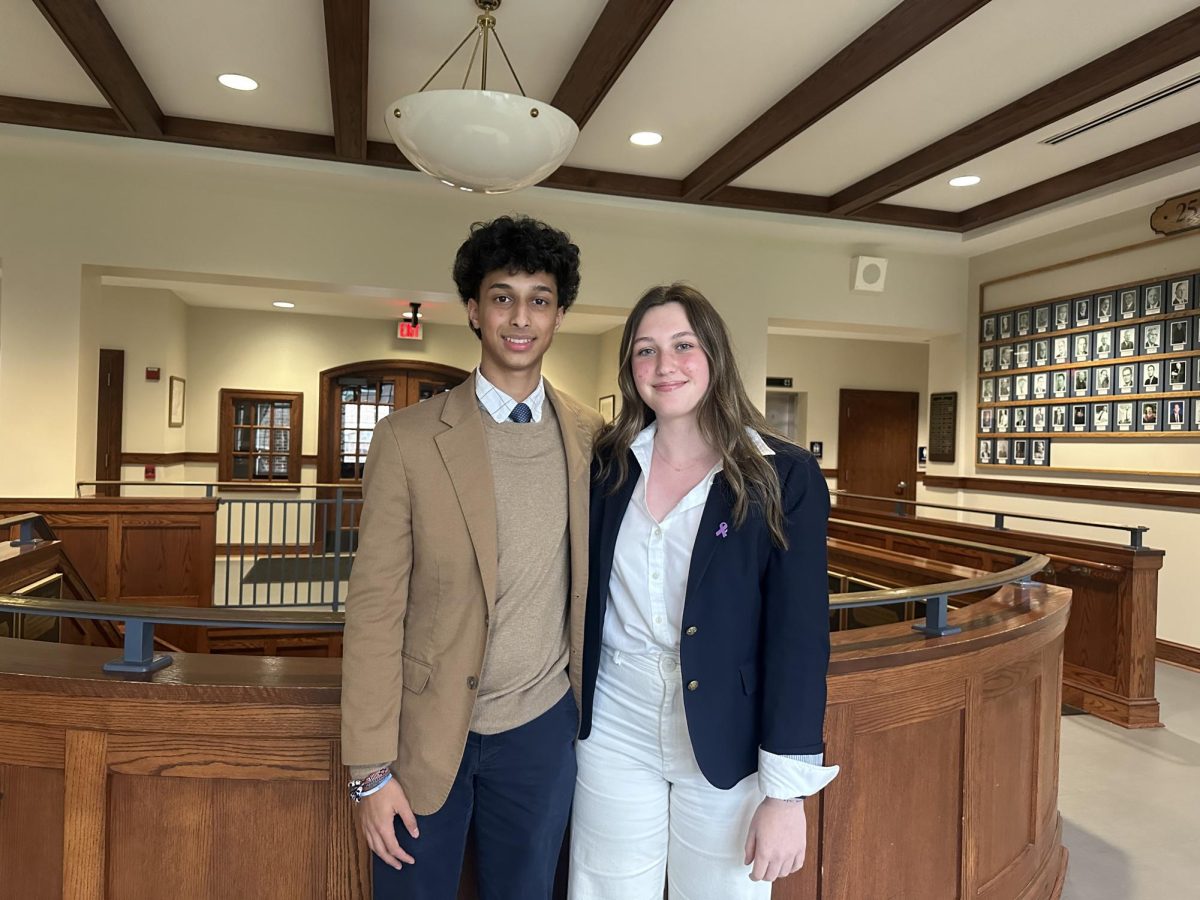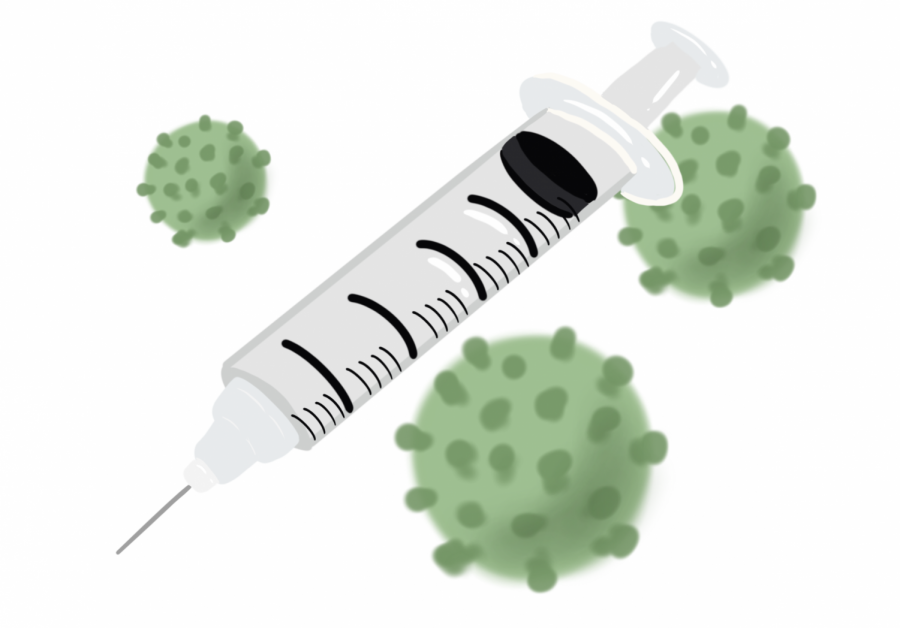Vaccination updates: What is being done to help prevent the spread of the new COVID-19 variant
Media: Chloe Han ’22
Illustration by Chloe Han ’22
COVID-19 is here to stay. With the emergence of more contagious variants, any illusions that we had of a short-term pandemic were dashed. Specifically, the Delta variant, first identified in December 2020 in India, has emerged as the dominant global strain of COVID-19. Transmissibility is comparable to other viruses such as varicella (chickenpox) and measles primarily due to the high viral loads Delta produces in infected carriers. Prior to the discovery of varicella and measles vaccines, these illnesses were considered endemic across the world, meaning everyone would at some point become infected. The emergence of the Delta variant guarantees indefinite, worldwide spread, especially across unvaccinated populations. As of August 2021, Delta represented 99% of active cases in the United States.
While strict lockdowns and mask wearing have proven effective in limiting the spread of COVID-19, vaccination represents the primary strategy to further open economies and societies. In the United States, high COVID-19 infection rates, hospitalizations, and deaths directly correlate with the percentage of unvaccinated Americans per state. Many states have introduced incentives to push people to get vaccinated. For example, Delaware enters vaccinated students between the ages of 12 and 17 into a statewide raffle for a full scholarship to Delaware University. In Louisiana, participating businesses are offering “a shot for a shot”: free alcoholic or non-alcoholic drinks to those who provide proof of full vaccination. Leadership across states varies in the promotion of vaccine uptake and mask wearing and other CDC-recommended protocols have become increasingly politicized.
Dr. Kristin Spencer, the medical director of Hill’s Wellness Center, strongly supports vaccination against COVID-19. Hill is offering vaccines to all eligible students. “By vaccinating as many people as possible and providing fewer people who remain highly susceptible, we will gain traction again in reducing the burden of disease,” she said. All CDC-approved COVID-19 vaccines are effective against the Delta variant, in particular protecting recipients against hospitalization and death, but immunity may slightly wane over time. On Sept. 20, booster shots will become available for double-vaccinated individuals. Immunocompromised patients will be offered the booster immediately. In a recent interview with the White House press corp, Dr. Anthony Fauci, chief medical advisor to the president, promoted boosters and stated: “You want to get ahead of the virus.”
Internationally, COVID-19 has devastated populations in India and Brazil but has spared nations such as Australia, Taiwan, and New Zealand where geographic isolation and population adherence to nationwide lockdowns has proven successful. The arrival of Delta has pushed many countries back into lockdown as they await vaccine shipments and delivery into arms.
As a world, we remain in the thick of the coronavirus pandemic. With full FDA approval of the Pfizer mRNA vaccine, there is hope that vaccine-hesitancy will diminish. For those of us living in vaccine-rich countries, the off-ramp clearly lies in vaccination; but the question remains: will a critical number of our families, friends and neighbors take it?


























